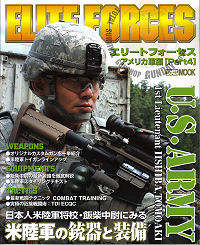 Last week Lockheed-Martin agreed to pay $4 million in fines arising from (1) a proposal it made to the UAE for the sale of Hellfire missiles without providing prior notice of the proposal to the Directorate of Defense Trade Controls (“DDTC”); (2) technical data it transferred to UAE officials without a license in connection with that proposal; and (3) disclosure of classified information on the Joint Air-to-Surface Standoff Missile to foreign persons of a major non-NATO ally. The settlement agreement between DDTC and Lockheed-Martin provided that $1 million of that fine would be suspended provided that Lockheed-Martin undertakes certain prospective compliance activities.
Last week Lockheed-Martin agreed to pay $4 million in fines arising from (1) a proposal it made to the UAE for the sale of Hellfire missiles without providing prior notice of the proposal to the Directorate of Defense Trade Controls (“DDTC”); (2) technical data it transferred to UAE officials without a license in connection with that proposal; and (3) disclosure of classified information on the Joint Air-to-Surface Standoff Missile to foreign persons of a major non-NATO ally. The settlement agreement between DDTC and Lockheed-Martin provided that $1 million of that fine would be suspended provided that Lockheed-Martin undertakes certain prospective compliance activities.
The most interesting part of this settlement relates to the charge that Lockheed-Martin failed to provide prior notice to the DDTC of its proposal to the UAE regarding the Hellfire missiles. Section 126.8(a)(2) of the International Traffic in Arms Regulations (“ITAR”) provides that prior notice must be given to DDTC of any proposal to sell more than $14 million dollars of “significant military equipment” to a country other than one that is a NATO member, Australia, New Zealand or Japan, provided that a license for permanent export of the article has been previously granted or a Foreign Military Sale of the item has been previously approved. If no such license has been granted, or FMS sale approved, the proposal requires prior approval by DDTC.
The issue is usually what constitutes a “proposal.” Is a casual conversation at the Farnborough Air Show covered? Does the proposal have to be a binding contractual offer? Section 126.8(b) of the ITAR attempts to define a proposal, but raises more questions than it answers
The terms proposal or presentation … mean the communication of information in sufficient detail that the person communicating that information knows or should know that it would permit an intended purchaser to decide either to acquire the particular equipment in question … For example, a presentation which describes the equipment’s performance characteristics, price, and probable availability for delivery would require prior notification or approval, as appropriate, where the conditions specified in paragraph (a) of this section are met. By contrast, the following would not require prior notification or approval: Advertising or other reporting in a publication of general circulation; preliminary discussions to ascertain market potential; or merely calling attention to the fact that a company manufactures a particular item of significant military equipment.
By contrast, the proposal given by Lockheed seems short of one “which describes the equipment’s performance characteristics, price, and probable availability for delivery.” According to the Charging Letter:
[Lockheed-Martin] sent its first proposal to the UAE on June 11, 2003, specifically providing a planning estimate and quoting a price for 360 Hellfire Heat missiles and 100 Hellfire Blast Missiles.
The takeaway from this is, I think, that any written proposal that provides a price for the item to be exported should be considered a proposal subject to section 126.8 and that this proposal will require prior approval or notification if the other requirements of that section are met.

 Posted by
Posted by  Category:
Category: 


 Donald Wayne Hatch, the owner of
Donald Wayne Hatch, the owner of 
 New-Jersey-based
New-Jersey-based 

